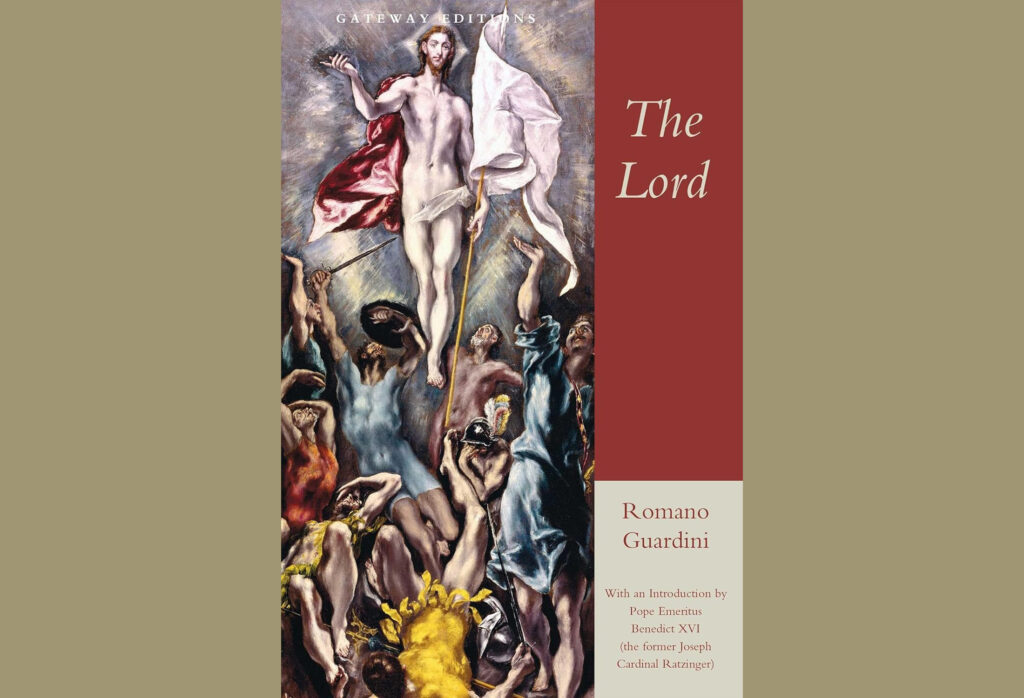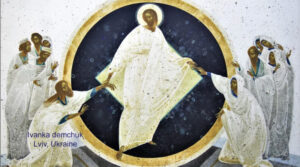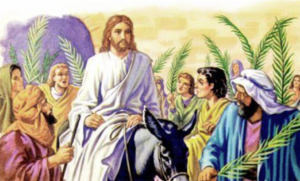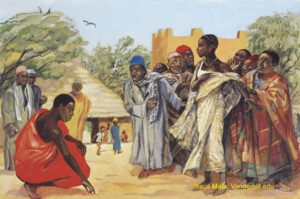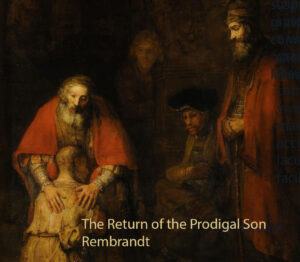Romano Guardini's compelling explanation of the Gospel's Kingdom of God - for those wanting to live faithfully the message of Jesus Christ, see the who and what of your everyday life as Jesus did in his everyday life, breathing it in, letting God's Spirit getting stronger within you, flow forth.
This is an excerpt from Father Romano Guardini’s book The Lord, Chapter 7 Beginnings. The Indented paragraphs have been added by me as suggested for meditation/discussion and pondering.
Father Guiarini (1885-1968) was a Catholic priest, philosoper and theologian. He was ordained a priest in 1910. He was a professor at the University of Berlin until the Nazis expelled him in 1939. His sermons, books, popular classes, and his involvement in the post-war German Catholic Youth Movement won him worldwide acclaim. His works combine a keen thirst for God with a profound depth of thought and a delightful perfection of expression.
This book, The Lord, is available on Amazon.
Sister Loretta
Jesus came into Galilee preaching the gospel of the Kingdom of God and saying ‘The time is fulfilled and the Kingdom of God is at hand. Repent and believe the Gospel.’” Mark 1:14:-15. Thus Jesus begins his public life with the proclamation of the glad tidings. “The Kingdom of God is at hand.”
. . . . Kingdom of God means a state in which God is king and consequently rules. What does that mean? Let us put it this way. What is it that actually has power over us? What rules me?
People mainly. . . . God reigns only inasmuch as consciousness of His presence is able to force itself upon me, to coexist with the people in my life.
Things also rule in me. . . . No, God certainly does not dominate my life. Any tree in my path seems to have more power than he, if only because it forces me to walk around it. What would life be like if God did rule in me? Then I would know, not by strenuous conscious effort, but spontaneously from the vitality of constant encounter [that] He is. . . . I would know him as I know the beauty and freshness of a meadow in full bloom. And I would be able to speak of him as I speak of its richness, deeply conscious of what I meant. His essence would be as real and clear to me as that of a person I knew intimately and understood to my good or harm. Someone with a certain face, a familiar gait, whose mind and spiritual powers responded in a specific manner to my own.
Discussion: We tend to forget that the situation in Jesus’ time wasn’t great. The Israelites were under Roman rule; there was illness, inequalities, uneven distribution of wealth, cruelty, even in their Pharisees, etc. The circumstances are different today, but the overall situation of the people then and now seems to be far from the God-created and God-intended earthly kingdom. instilled in us Jesus didn’t direct his apostles to address these. Yet, Jesus did not try to overthrow the structure and rulers; he focused on individual, on what would bring them to their own individual and communal orientation to seeking an inner awareness of God and the things of God. And when he was leaving, he asked his disciples to continue doing this.
Ponder: Why do you think God became a human person and lived on this earth for as long as we humans allowed him to live among us?
If you believe that God has the power to be here with you right now and is waiting for you to turn your attention to Him, do that and ask God to help you with this. Then be still and listen.
Then God would stand with all the power of His being in my soul as the point of departure, the sense and goal of everything. My heart and will would experience Him as the Holy Being who appraises every value, the sense behind all senses as the One who rewards not only ultimately, but who alone, here and now, lends the most insignificant earthly act its intrinsic justification and meaning.
Then his summons would really reach me, and, shaken and blissful, I should know that my human personality consisted of nothing but the manner in which he calls me and the response I make to that call. From that moment on, my conscience would clearly recognize its duties and overstepping their conscience, the ultimate inhuman experience would stride into my life, love fulfilling its holy destiny between God and me alone.
Where this is so, there is the Kingdom of God.
But with us it is the Kingdom of people, Kingdom of things, Kingdom of earthly powers and events and arrangements and interests. They stifle God, crowd him out of our lives. Only in the pauses of our existence or on its fringes do they allow him to come into his own. Who can understand how God can be what He is, how everything that He is, has its being through Him alone? So much so that were He to withdraw his hand, it would dissolve like a shadow in the sun.
Yet that I, who have nothing in myself, who exist only because he made me a symbol or image of my maker, can be so ignorant of him. How is it possible that the tree in the road is more real to me than he? That God remains but a word to me that he does not stream overpoweringly Into my heart and consciousness?
Thus one must suggest what the Kingdom of God must be.
. . . .
It was decisive for the future that the tidings of the Kingdom were first announced to the chosen people, the people of the covenant that Abraham had sealed on Mount Sinai. Had this people believed and the Kingdom of God been accepted and allowed to unfold, who knows what might not have been achieved? A new state of being would have been launched. A new creation, new history, the promise of Alpha and Omega. “Behold, I make all things new” would have been fulfilled. Literally the Apocalypse 21:5 – high tide of the world, unending transformation in the storm of Pentecostal love. But the Jewish people did not believe, they did not change their hearts, so the Kingdom did not come as it was to have come. To this day it remains pending, straining toward us in a continual advent. Sometimes it reaches out and touches individuals or small groups, sometimes briefly even a whole community; then it recoils again.
. . .
What a privilege it would have been to see the Lord in those early days. . . .
Buoyed by the stream of the spirit, . . the healings. Simon’s mother-in-law was keeping her bed sick with a fever, and they immediately told him about her, and drawing near, he took her by the hand and raised her up. And the fever left her at once, and she began to wait on them. Mark 1:29-31. First the single old woman. In her house, then, the many stirring accounts of innumerable sick being carried through the cool of evening to the Master’s door. In the loving, healing strength of the Spirit, Jesus looms like a rescuing cliff above the tides of human suffering.
After this great outpouring, the opposite quiet withdrawal, collecting the forces and rising up long before daybreak, he went out and departed into a desert place. And there he prayed. Mark 2:35.
It is that solitude again with its stillness and overflow of spirit in which he once spent 40 days.
Discussion. Do we, the individual persons of today, really want to be disciples of this Jesus? Do we want to understand why God has placed us here, in this situation, among so many needy persons – and being so needy ourselves, so unprepared for anything that we think is needed?
Is who I am and what I could become with help from God and other believers really that much needed to make the world and us in it more of the Kingdom of God?

